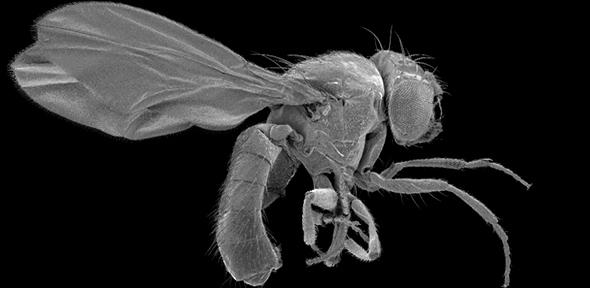
Submitted by Christine Alexander on Mon, 26/09/2016 - 13:52
In an article appearing in the Observer on 25 Sept 2016, 'In praise of the humble fruit fly', Andrew Anthony explains why Drosophila is so important in medical research, and how the Department of Genetics has played - and continues to play - a key role in that research.
Fly Facility Manager Simon Collier took the reporter on a tour of the Department, and explained how they are so essential.
Genomically speaking, Drosophila are close enough to humans for research undertaken on them to be translated to us. For example:
"It was Michael Ashburner, the godfather of fruit fly research at Cambridge, who first established that of the genes that in their mutant form cause diseases in humans – cystic fibrosis being one example – around 75% have very similar equivalents in fruit flies. ... As a result of his foundational work, which includes his classic book Won For All: How the Drosophila Genome Was Sequenced, Cambridge has become arguably the world’s leading centre of fruit fly research."
Cahir O'Kane fits his research into the wider picture:
“I’m interested in [Drosophila] because I think it’s a great system for finding out how living things in general can work. I think by understanding the principles of how flies work then you can make better predictions for humans. The better you understand how we work the more rational you can be about trying to design therapies; I think even without directing your work towards therapy, then you can think more intelligently about therapies five or 10 years down the line.”
Read the full article: https://www.theguardian.com/science/2016/sep/25/in-praise-of-the-humble-fruit-fly-genetics-research
Fly Facility website: http://www.flyfacility.gen.cam.ac.uk/
